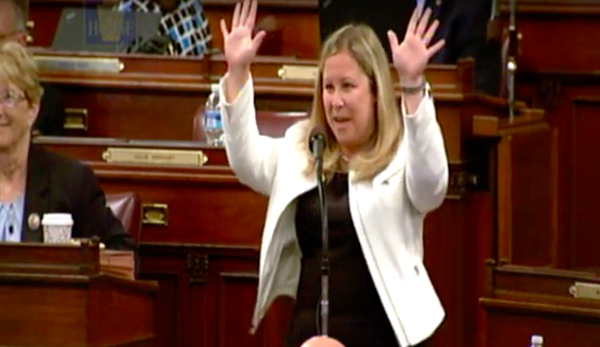Many are familiar with Pennsylvania's outdated and puritanical liquor laws, which are slowly but surely being dragged into modern times.
But what about the Commonwealth's bingo laws?
Those, too, needed to be brought into the 21st Century, at least according to State Rep. Kate Klunk, R-York. Her legislation reforming the state's bingo code was signed into law by Gov. Tom Wolf just before the Christmas weekend.
- RELATED STORIES
- Pennsylvania legalizes aerial fireworks ahead of New Years
- Gov. Wolf vetoes 'disingenuous,' 'extreme' GOP abortion bill
- You can set your house on fire in Pennsylvania and not be charged with arson
According to Klunk, bingo allows volunteer fire companies and other charitable organizations to increase revenue for their endeavors. But the current law regulating the game, passed in 1981, hinders such organizations' ability to advertise the game's big draw: cold hard cash.
“A quirk in the current law forbids community organizations from advertising the dollar value of cash prizes," Klunk said earlier this month after her bill passed the Senate.
"My legislation would remove that. Organizations would also be permitted to advertise bingo games on the internet and through social media.”
At a Gaming Oversight Committee in April, Klunk said the new law, which she worked on with Rep. Dom Costa, D-Pittsburgh, would help applicable organizations raise money on their own "so that they're not coming to us with their handout."
The new bingo law also increases the maximum prizes for games: from $250 to $500 for a single game; from $2,000 to $4,000 for jackpot games; and from $4,000 to $8,000 in the total amount awarded in a single day.
Additionally, restrictions on the number of days an organization can hold bingo have been lifted, guests not affiliated with the organization are permitted to call the game, and pre-draw bingo (players purchase concealed bingo cards and numbers are randomly generated) is now allowed.
Organizations must still apply for a bingo license. Those licenses are handled at the local level, and applications can usually be found on a county's website. Philadelphia organizations can apply here.


